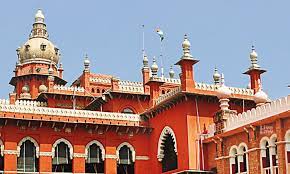


The Madras High Court in the case Sudha Sarveshkumar v Chief Secretary and others observed and has refused to entertain the plea moved by a native of Villupuram in order to reopen the Sri Dharmaraja Draupadi Amman Temple sealed by the Revenue Divisional Officer.
In the present case, the temple which is situated in the Villupuram District, was sealed by the Revenue Divisional Officer on June 7 following a dispute over the entry of Scheduled Caste members into the temple and the members belonging to the dominant caste had been protesting against the entry of members belonging to the Scheduled communities in the temple while the latter had been protesting for their right to entry. Thus, when the rounds of peace talks failed, the RDO in the ordered the temple to be sealed under Section 145(1) of the Code of Criminal Procedure, 1973 to prevent any possible breakdown of law and order. The bench comprising of Chief Justice SV Gangapurwala and Justice PD Audikesavalu in the case was hearing the plea regarding the reopening of the temple.
However, the court disposed of the same, while granting liberty to the petitioner to approach the Hindu Religious and Charitable Endowment Department.
It has been submitted by the petitioner, Sudha Sarveshkumar that the temple was closed citing civil unrest which was in fact caused by some unscrupulous elements who wanted to disturb the peace and tranquillity of the village. It has also been claimed by her before the court that there was no untouchability in the village and that people belonging to the Dalit community were entering the temple.
Further, it has also been submitted by her that due to the sealing, the daily poojas of the temple have been affected and that non-performance of the daily poojas affects the sanctity of the temple and is against the Agamas. Adding to it, she submitted that even during COVID time, instead of locking the temples, the daily poojas were being performed without allowing the public to participate and the same should have been done in the present situation.
The court in the case observed and has contended that sealing of temples tantamount to offences under Section 295 and Section 295A of the Indian Penal Code, 1860, wherein it has been submitted by her that it denies the rights of the deity as per the decisions of the Supreme Court. Further, she seeks for a direction to reopen the temple and continue performance of daily pooja.